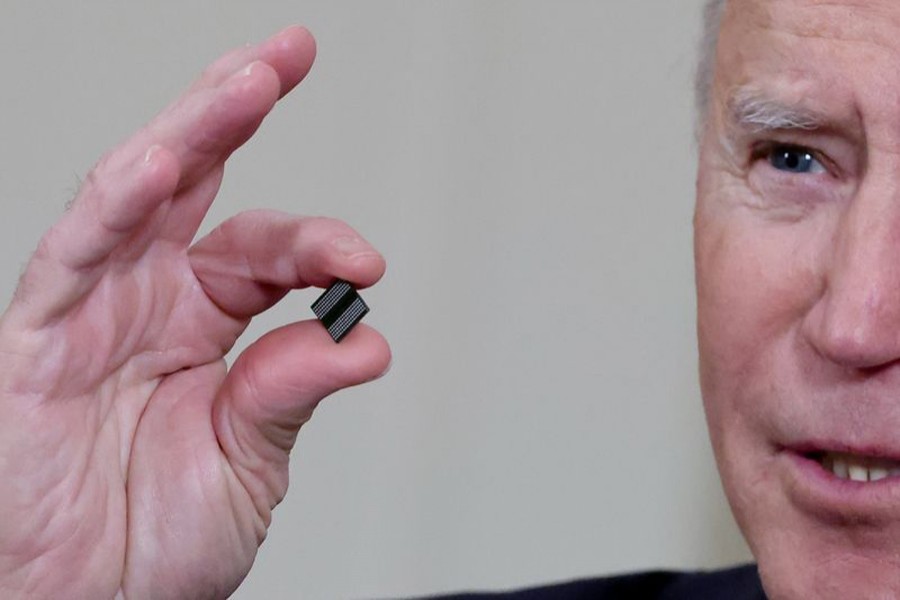A US national security commission has recommended Congress tighten up “choke points” on chipmaking technology to prevent China from overtaking the United States in semiconductors in the coming years.
The National Security Commission on Artificial Intelligence (NSCAI), led by former Google Chairman Eric Schmidt, on Monday recommended clamping down on China's ability to procure the manufacturing equipment needed to make advanced computing chips. Such chips are used in surveillance technologies such as facial recognition, reports Reuters.
“China is making an aggressive push to promote authoritarianism around the world,” an NSCAI official told Reuters. “It boils down to semiconductors.”
Much chipmaking equipment comes from US firms such as Applied Materials Inc and Lam Research Corp which are already subject to American export controls. But key gear also comes from firms such as Nikon Corp and Canon Inc in Japan and ASML Holding in the Netherlands.
The report recommends that the United States coordinate with those countries to create a policy of “presumptive denial” in each country for export licenses of advanced chipmaking tools to China.
The report also recommends formalising into US policy a longstanding regulatory practice of limiting China’s semiconductor industry to two generations behind the United States.
In addition to steps to protect US and allied chipmaking technology, the report also recommends measures to promote semiconductor manufacturing in America after decades industry migration to Taiwan and Korea.
The $35 billion in proposals for grants and funding for chip plants and research overlaps with $37 billion in chip industry measures that President Joe Biden pledged to support last week.
The commission also calls for a 40 per cent investment tax credit for semiconductor tools, which it says would spur chip factory construction in the United States as well as benefit American toolmakers.
“Our No. 1 ‘protect’ strategy is to run faster” than China’s chip industry, the NSCAI official said.


